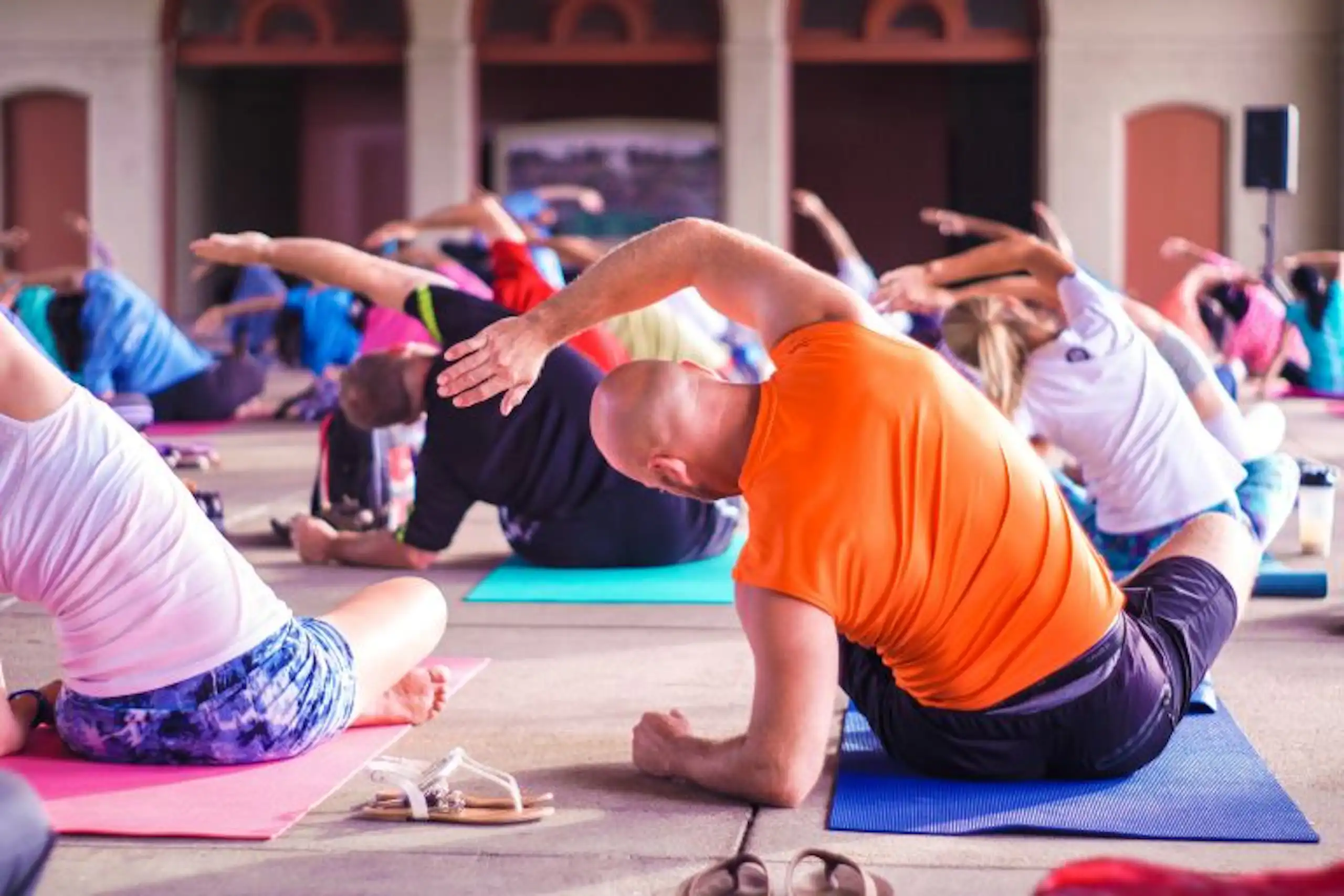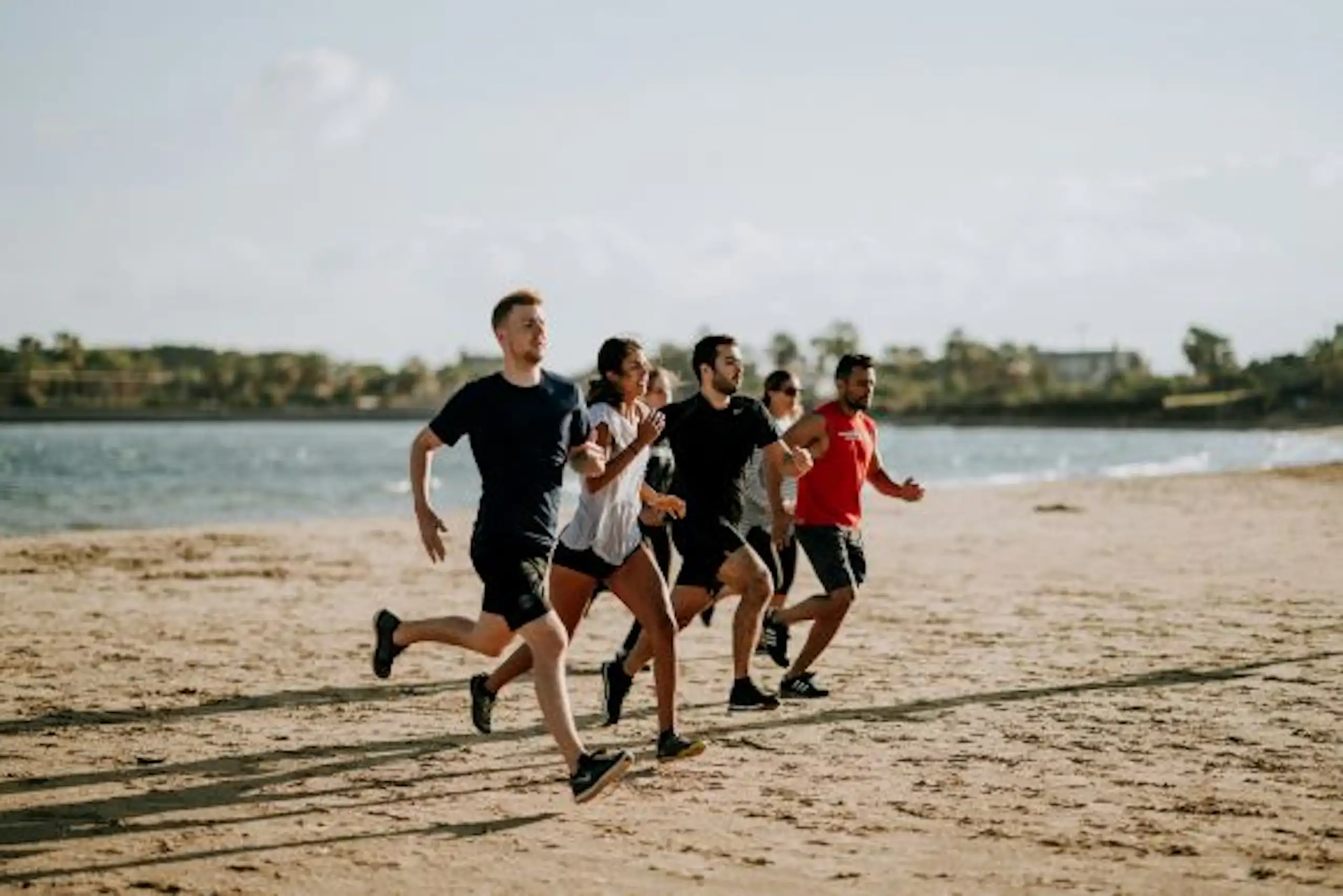Latest
Best ways to use exercise to reduce anxiety

Struggling with feelings of anxiety can be debilitating. The simplest of tasks can be overwhelming. Simply going to work, having the simplest conversation with your line manager or a colleague can cause a spiral and take a toll on your mental health, possibly acting as the gateway to depression.
Worryingly, anxiety rates in the UK continue to rise, with the Office for National Statistics reporting that 22.6% of adults in the UK experienced high anxiety levels in 2024.
However, there is a proven method to combatting anxiety and other mental health struggles, and that is exercise. It is proven that regular physical activity can boost a person’s mood, making them healthier and happier.
How anxiety impacts your health
Anxiety is a perfectly natural reaction that every person has or will experience at some point in their lives. It’s typically the experience of feeling uneasy or fearful. These feelings could be generalised, or they could relate to a specific scenario.
Whilst anxiety can be positive in some instances to ensure we take extra care in scary or dangerous situations, if a person is experiencing too much anxiety or it is for a prolonged period, it can become overwhelming and negatively impact a person’s ability to manage everyday scenarios and their health.
Feelings and the impact of anxiety can range from mild to severe and impacts a person’s mind and body. In the milder instances, a person might avoid certain events or tasks, interactions with people or even begin to feel weepy and tearful.
However, further along the scale, the effects can become more pronounced. Beyond general feelings of unease, inability to engage with a specific interaction, a person could suffer intense stress related headaches or even begin avoiding events and people that act as a trigger.
It may also have an impact on their sleeping patterns which further contributes to mental health struggles and intensifies issues. The impact it can have on a person’s health and wellbeing is multi-faceted. It can delay a person taking action to improve their standard of wellbeing, or it can be the inciting incident that causes their health to spiral.
How exercise can reduce anxiety and stress
There is a well-documented and studied relationship between mental health and physical exercise. This is particularly prominent when discussing the condition of anxiety. Studies have suggested that symptoms of acute anxiety can be alleviated through exercise, in a similar way to how meditation and breathing exercises can relieve the negative symptoms.
When a person is regularly exercising, the body releases endorphins and the levels in the body increase with each instance. When these endorphins are released, along with other natural ‘feel good’ chemicals which will help soothe tensions and negative thoughts in a person’s mind. Another noted factor is the increase in body temperature that comes from exercising, which has been typically found to inspire a sense of calm in a person.
When this is practiced in conjunction with medical treatments and therapy, a person’s mood can be lifted, their routine becomes clearer, and they may create a stronger self-image through weight-loss and increased energy.
Experiencing these feel-good hormones (endorphins) on a regular basis inspires routine to continually boost a person’s mood and keeps them motivated. This focus can begin to alleviate the symptoms of anxiety as a person is now more focused on their routine over the overcoming negative feelings.
How much exercise should I do?
The NHS suggests that adults should aim for about 150 minutes of moderate exercise every week, in particular including some form of muscle strength exercises into this routine. These routines don’t have to be particularly extensive. They can range from lifting weights you can handle at home, it could be going for a walk or even carrying heavy shopping back from the shop.
One of the primary things that prevents people from overcoming anxiety and actually engaging with an effective exercise routine is not knowing which routines work for them and how much they are doing.
Often, they may take on too much and attempt to do too much, and be discouraged, or not do enough, see little progress or results and believe they will be unsuccessful in their efforts. Setting achievable, manageable goals can keep you motivated and understand the levels you are at. If you feel physically able, you can begin to ramp up towards a more intense routine.
However, if you are feeling self-conscious and doubtful, you can begin with very easy-going routines such as yoga or following the ‘Couch to 5K’ running routine to gradually build up your confidence and be more ambitious.
Whatever helps you achieve the goal of reaching up to 2 hours and a half a week minimum, stick to this routine to continue your progress and improve your mental wellbeing.

Steps to use exercise to reduce anxiety
Using exercise as a method to reduce the amount of anxiety you experience or lessen the effects of an anxiety attack, a person needs to know what works best for them and how they can best manage the methods. It might be finding which exercise best suits you, the time you have to dedicate to it and how engaging it is.
To initially do this, it may be best to research different methods and programmes you can follow. Here are just a few examples of some of the steps you can take to reduce anxiety levels through exercise:
Couch to 5K:
If you are looking for an easy and accessible exercise routine that you can regularly practice throughout the week, running might be the best option. One of the easiest ways to get involved with running is to take the process slowly and build up to a point where you feel you are self-sufficient.
Couch to 5K is an excellent resource for beginners to use to make this a reality. Through the guidance of a trainer, users can begin establishing their goals and level of comfort when running so there will be a healthy mixture of both running and walking.
With encouragement from the trainer, running at your own pace and walking intervals, as the weeks progress, your confidence will continue to build, and you will soon be able to continuously run for 30 minutes. For those who want a simple and accessible form of exercise with guidance that helps them overcome issues of anxiety and lack of self-belief, Couch to 5K could be the most accessible.
Yoga routines:
For those who are looking to find a sense of mindfulness and calm through exercise, easy to follow yoga routines are extremely useful. There is no lack of variety when it comes to yoga routines.
Whether you are a beginner looking for an easy jumping point, looking to improve core strength or something that can be easily practiced through the day from your office chair, the options are endless. Yoga provides a relaxing and mindful exercise for those looking to quell the symptoms of anxiety.
Through a combination of stretching and breathing techniques, an individual can clear their mind of negative thoughts, remain in the moment and overall improve their focus. Whilst more advanced techniques may be slightly more strenuous, the practice of yoga is based on what the individual can manage to remain focused.
There are a host of different yoga practices ranging from advanced to those for beginners on the Wisdom app as well as a health and nutrition trackers to visualise the progress being made.
Step goals:
It may be something simple, but it can act as a solid base for progressing in someone’s personal exercise journey. Anxiety can affect people in different ways and be hugely damaging to a person’s self-confidence and belief.
They may not feel prepared to take on an activity such as running or yoga, they may want to do something far more reserved. This is where daily step counters can be extremely beneficial. Setting a goal of a specific number of steps to hit a day provides individuals a clear focus and achievable goal for physical activity. It is typically recommended that adults between the age of 18 – 59 take between 8,000 and 10,000 steps daily.
Whilst this may seem intimidating initially, but by doing simple things such as going for regular breaks and walking around the office or walking to the shops to collect groceries, you can quickly accumulate a high number of daily steps. Completing a step goal each day keeps you active in an easy-to achieve matter and gives a person the sense of accomplishment from achieving their goal.
How the Wisdom App can help with anxiety
Dealing with anxiety is an ongoing battle and can sometimes the condition can feel debilitating, preventing a person from doing the simplest things in life. Overcoming the condition differs from person to person and they have to discover which methods work best for them. Whether that is exercising or speaking to a professional to better understand the issue.
Both can be achieved by using the Wisdom App. Regarding exercise, the Wisdom App contains a host of trackers and resources so you can better track your progress across the months and weeks, seeing how you are growing and improving upon your routine. Or, if you choose to follow some of the easy-to-follow exercise on the app, you can begin to develop your routine from the app to overcome and quell feelings of anxiety.
If you feel your symptoms require greater expertise, using the Wisdom App, individuals will also have access to a 24/7 helpline and chat function where they can connect with qualified counsellors, 365-days a year. Our expert counsellors are equipped to hear your concerns and provide guidance to help you overcome feelings of anxiety, ensuring you can thrive in your professional and personal life. The Wisdom app can act as the reliable, one stop-shop to help you when feelings of anxiety become overwhelming.
Conclusion
Exercise can be extremely beneficial to a person’s wellbeing, whether that be physically or mentally. The physical benefits of regular exercise are clear with increased energy levels and confidence.
The impact on mental wellbeing however can often be overlooked. By providing people with a defined goals, focuses and enabling the release of endorphins, negative feelings of anxiety can be subdued and an individual can then begin to refocus on themselves and the current moment, continually growing and improving.

HA | Wisdom Wellbeing
HA | Wisdom Wellbeing is the UK and Ireland’s leading EAP provider. Specialising in topics such as mental health and wellbeing, they produce insightful articles on how employees can look after their mental health, as well as how employers and business owners can support their people and organisation. They also provide articles directly from their counsellors to offer expertise from a clinical perspective. HA | Wisdom Wellbeing also writes articles for students at college and university level, who may be interested in improving and maintaining their mental wellbeing.
Discover how an EAP can support your employees
With an Employee Assistance Programme (EAP) from HA | Wisdom Wellbeing, we can offer you practical advice and support when it comes to dealing with workplace stress and anxiety issues.
Our EAP service provides guidance and supports your employees with their mental health in the workplace and at home. We can help you create a safe, productive workspace that supports all.







